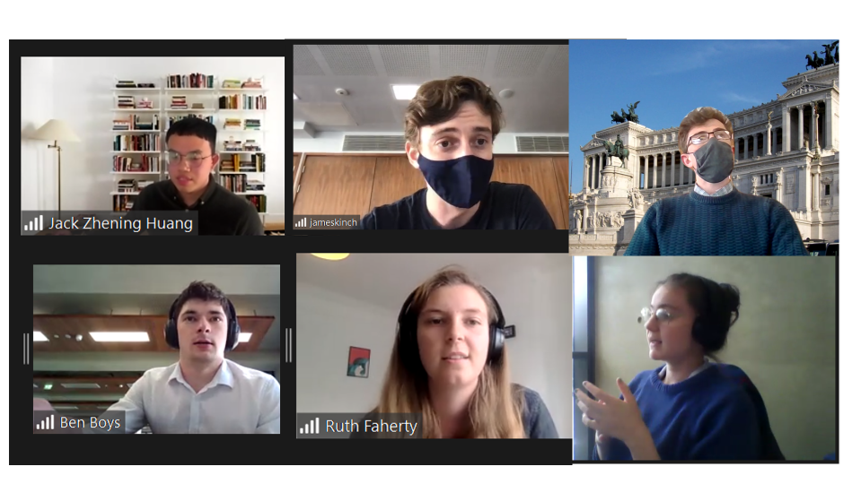
Submitted by Sara-Shanti Tamby on Mon, 24/05/2021 - 14:47
Last week saw the culmination of the FIBE2 CDT students’ hard work on their MRes mini-projects. Each student presented their findings to an online audience of peers, academics from the Division and representatives from the sponsoring companies.
This year we had three companies setting the students an overarching challenge to tackle.
- Trimble Water: Impact of pressure transient events on resilience and lifetime of water distribution networks
- Highways England: Improving the operational resilience of a connected highway
- BP: Planning of new Electric Vehicle charging infrastructure
ARUP provided facilitation of the mini-project. They ran a session that took the students through their own double diamond tool for project scoping and planning.This final event really showcased the outcomes the students had arrived at with suggested recommendations for next steps.
For Trimble Water, Douglas Morley and Benjamin Boys had considered leakage as a proxy for pipe damage as well as how to build an event detector that would identify water transient events. Ruth Faherty and Jack Huang had worked with Highways England. They had both used machine learning approaches to investigate the impact of surface water flooding and whether traffic flow could be used to detect incidents on the Strategic Road Network. The final three students – K-M White, James Kinch and Teresa Irigoyen-Lopez – had adopted BP’s challenge around planning future electric vehicle (EV) charging infrastructure. This was tackled from the perspective of social barriers to the uptake of EVs; whether an agent-based model of taxi fleets could determine vehicle to grid ( V2G) charging and some macro-scale modelling looking at the future of renewable energy production and demand and how V2G charging might play a role in meeting this.
Judging by the questions from the audience, everyone had produced interesting results and provided much food for thought.
We would like to extend our thanks to the following people for making these mini-projects possible;
Ben Kidd, Elisa Magini and James Rickerby (ARUP)
Thais Lauer, Yannis Perrakis and Brandon Roberts (BP)
Phillip Proctor and Ian Gordon (Highways England)
Adrian Newcombe, David Baganski and Jacob Robinson (Trimble Water)

